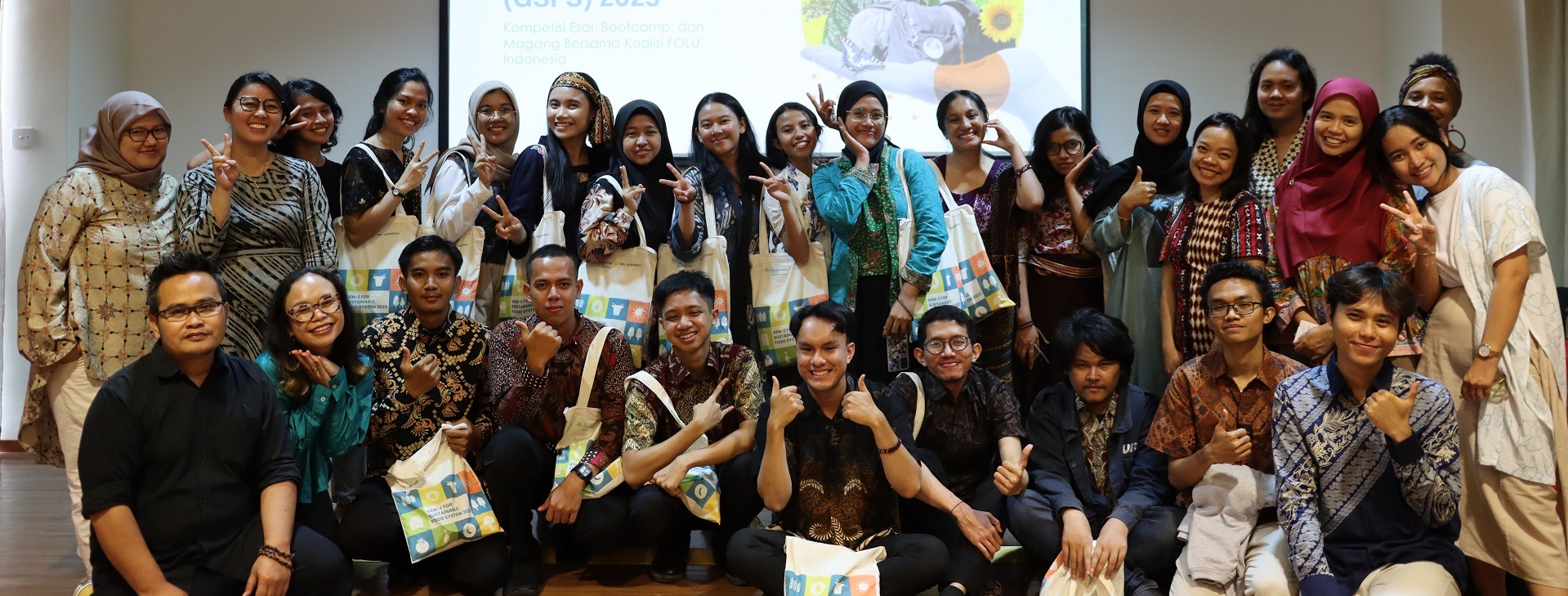Gen-Z for Sustainable Food Systems: Empowering youth for healthier people and planet
By Annisa Nisitha Nindyarini, Communications Officer, WRI Indonesia
Climate change poses escalating challenges, with its repercussions disproportionately affecting the younger population. The urgency to confront this issue is highlighted by data from the Stockholm Environment Institute, which shows that a child born in 2020 is twice as likely to experience wildfires, 2.6 times more vulnerable to droughts, faces as 2.8 fold increased exposure to river floods, and is an alarming 6.8 times more at risk of heat waves compared to someone born in 1960.
Our food systems significantly contribute to climate change, responsible for a third of global greenhouse gas emissions. In Indonesia, emissions from agriculture have been on the rise and in 2019, the total greenhouse gas emissions from the sector were equivalent to those of 25.8 million power plants in a year.
Indonesia holds a noteworthy demographic edge, marked by a predominantly youthful population. As per the Central Statistics Agency’s data from 2020, approximately 74.93 million individuals belonging to Generation Z (born between 1997 and 2012) constituted 27.94% of the total population. This demographic profile not only underscores Indonesia’s dynamic and vibrant society but also instils optimism for prospective advancements and transformative changes on the horizon.
Given the pressing challenges we face, it is more important than ever that we include the voices of young people in decision-making processes that shape their future and that of the planet.
To empower the youth in driving the transformation of Indonesia’s food system, the Secretariat of FOLU Indonesia (formally known in Indonesia as Koalisi Sistem Pangan Lestari (KSPL)) hosted “Gen-Z for Sustainable Food System (GSFS) 2023” in Bandung, West Java. This event featured essay competitions, intensive bootcamps, and internship opportunities, all with the primary goal of discovering and nurturing dedicated young individuals to drive positive change.
Taking place throughout August and September 2023, this event was held in collaboration with the FOLU Indonesia Core Partner Group, including World Resources Institute (WRI) Indonesia, Yayasan Humanis dan Inovasi Sosial (affiliated with HIVOS), KEHATI Foundation, Global Alliance for Improved Nutrition (GAIN) Indonesia, and CIFOR-ICRAF. It revolved around five key themes:
- Building resilience among fishermen for food security, nutritional well-being, and climate adaptation.
- Promoting food diversity through the utilization of local resources and Indigenous wisdom for sustainable food security and community economies.
- Exploring low-carbon, locally sourced protein and micronutrient solutions.
- Harnessing local foods to improve national nutrition and preserve Indonesia’s rich cultural heritage.
- Tackling food loss and waste
Three finalists from each topic area travelled from across the country to participate in the bootcamp. On the first day, the activities began with a welcome dinner and networking session.
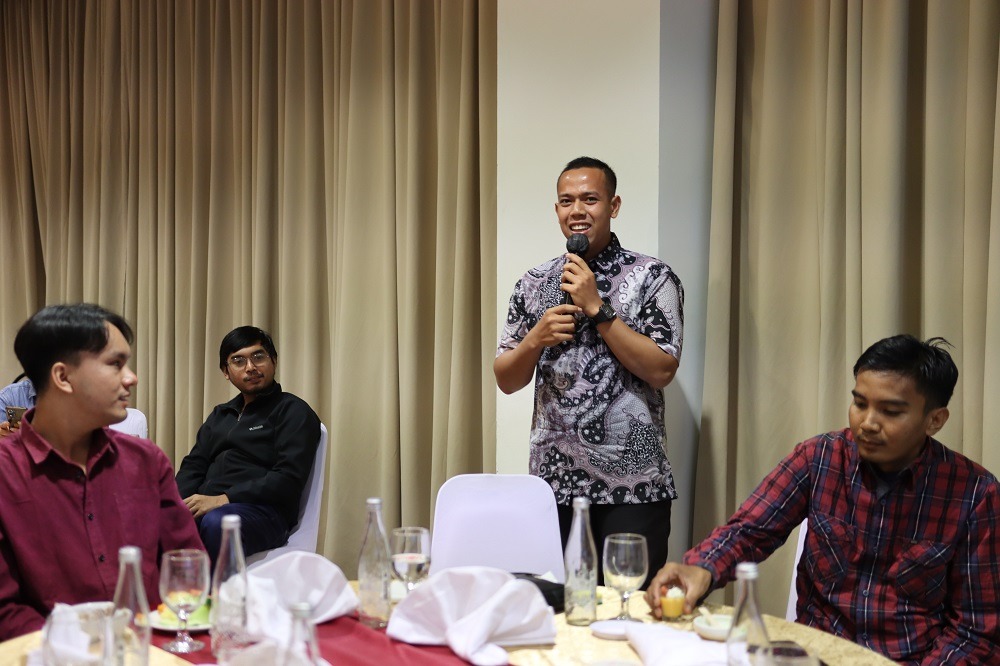 The second day brimmed with enriching sessions led by mentors from the coalition and guest speakers. The topics covered spanned issues in the food system, effective storytelling, and leveraging social media for advocacy in the transformation of food systems. Moreover, an insightful talk show, featuring speakers from Garda Pangan, Dapur Tara, and Bakudapan, delved into crucial subjects such as food waste, the importance of local food, and the intricate link between food and carbon emissions. The day was further enriched by dynamic group activities, including stakeholder role-playing and presentations.
The second day brimmed with enriching sessions led by mentors from the coalition and guest speakers. The topics covered spanned issues in the food system, effective storytelling, and leveraging social media for advocacy in the transformation of food systems. Moreover, an insightful talk show, featuring speakers from Garda Pangan, Dapur Tara, and Bakudapan, delved into crucial subjects such as food waste, the importance of local food, and the intricate link between food and carbon emissions. The day was further enriched by dynamic group activities, including stakeholder role-playing and presentations.
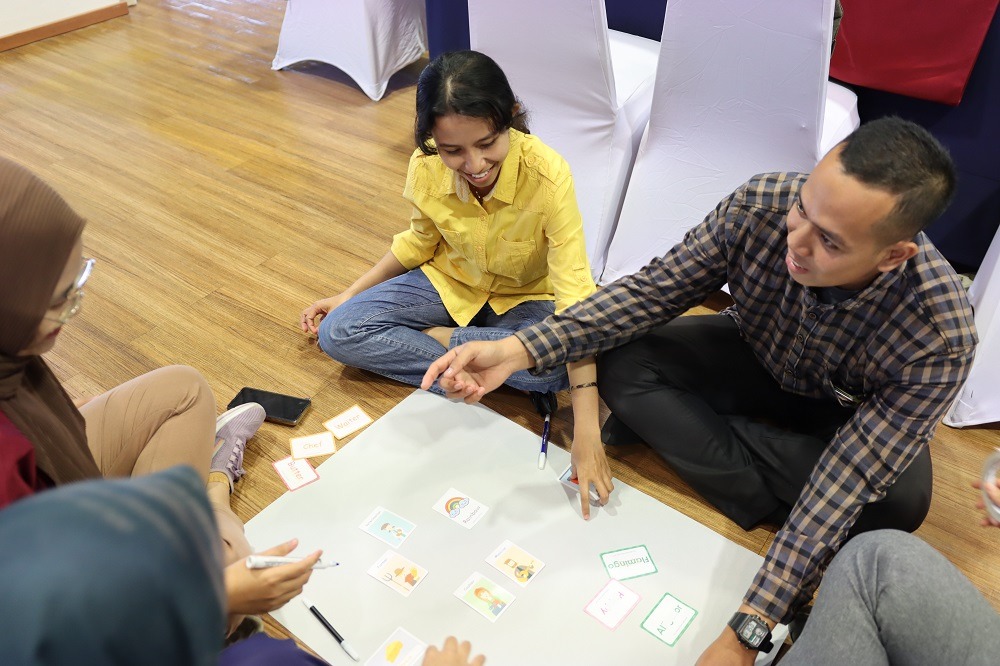 On the third day, the group visited two urban farms in Bandung, the capital city of West Java province. The first stop was Seni Tani, a youth-driven initiative that breathes life into fallow land beneath electricity pylons. The second destination was Buruan Sae “Bima Mandiri,” a community-led project managed by local retirees. Buruan Sae is a Bandung local government initiative that encourages residents to take charge of their food supply.
On the third day, the group visited two urban farms in Bandung, the capital city of West Java province. The first stop was Seni Tani, a youth-driven initiative that breathes life into fallow land beneath electricity pylons. The second destination was Buruan Sae “Bima Mandiri,” a community-led project managed by local retirees. Buruan Sae is a Bandung local government initiative that encourages residents to take charge of their food supply.
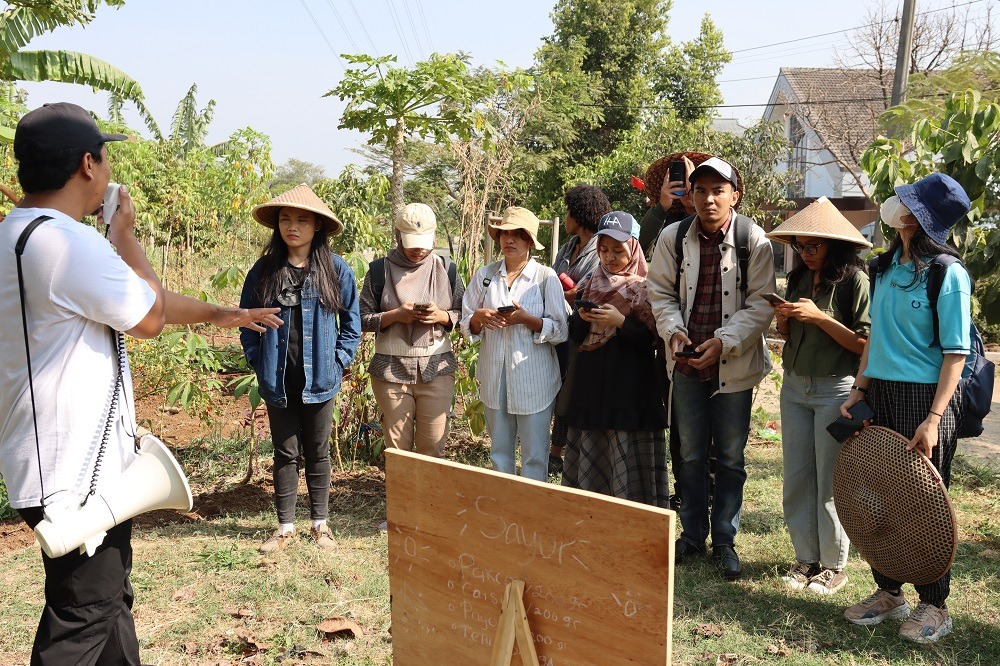 On the fourth and concluding day, the finalists showcased their visions for how Gen–Z can actively contribute to the transformation of food systems. Notably, one presenter focused on the role of Gen-Z in challenging traditional beliefs that contribute to food waste. The presentation shed light on the customs of the Batak tribe, Indonesia’s third-largest ethnic group, renowned for their frequent and grand feasts. Their belief centers on associating greater prestige with larger feasts and more abundant food offerings. Unfortunately, these celebrations often result in substantial food waste. This is where Gen-Z comes in, aiming to initiate change starting within their immediate environment and families through education and campaigns.
On the fourth and concluding day, the finalists showcased their visions for how Gen–Z can actively contribute to the transformation of food systems. Notably, one presenter focused on the role of Gen-Z in challenging traditional beliefs that contribute to food waste. The presentation shed light on the customs of the Batak tribe, Indonesia’s third-largest ethnic group, renowned for their frequent and grand feasts. Their belief centers on associating greater prestige with larger feasts and more abundant food offerings. Unfortunately, these celebrations often result in substantial food waste. This is where Gen-Z comes in, aiming to initiate change starting within their immediate environment and families through education and campaigns.
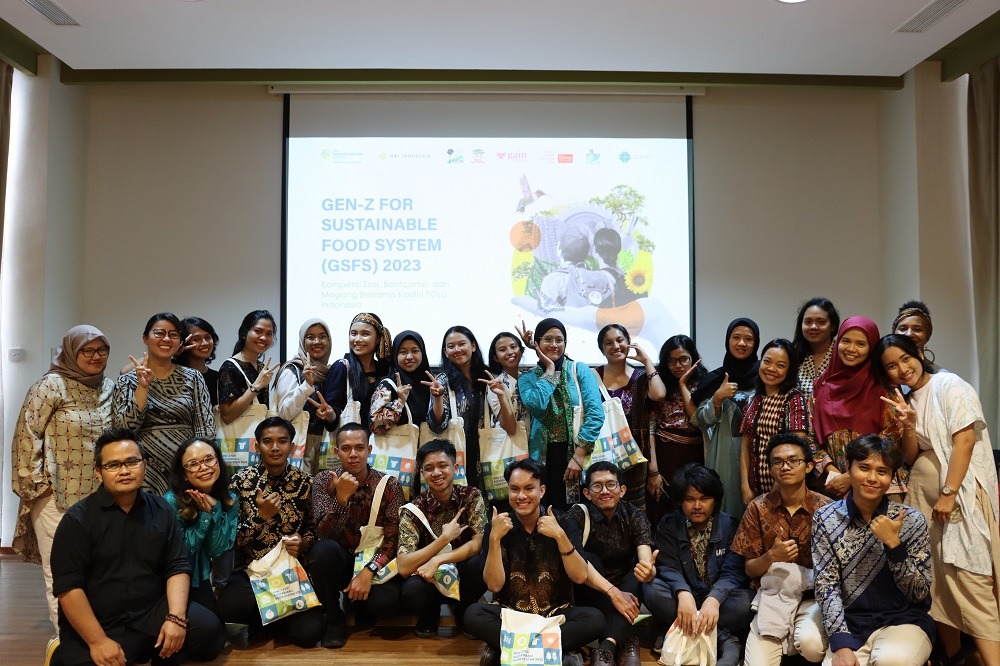 The event concluded with reflections from participants:
The event concluded with reflections from participants:
“This activity was well organized and planned. I am delighted to be able to undertake a field visit to witness sustainable farming practices first-hand. Furthermore, I am grateful for the opportunity to exchange ideas with other participants from various backgrounds and regions. The atmosphere of this activity is very friendly and it doesn’t feel like a competition,” said one of the participants during the session.
Out of the 15 accomplished finalists, five winners were selected to partake in internships aligned with their chosen themes. These individuals were chosen based on their essay scores, assignments, presentations, and their overall conduct during the bootcamp. FOLU hopes that this initiative will encourage more young individuals to contribute to the realization of equitable, sustainable and resilient food systems that enable people and nature to prosper.
The works of all GSFS finalists, such as opinion articles and social media content, can be accessed on Instagram through hashtags #PanganSehatBumiSehat and #GSFS2023.


